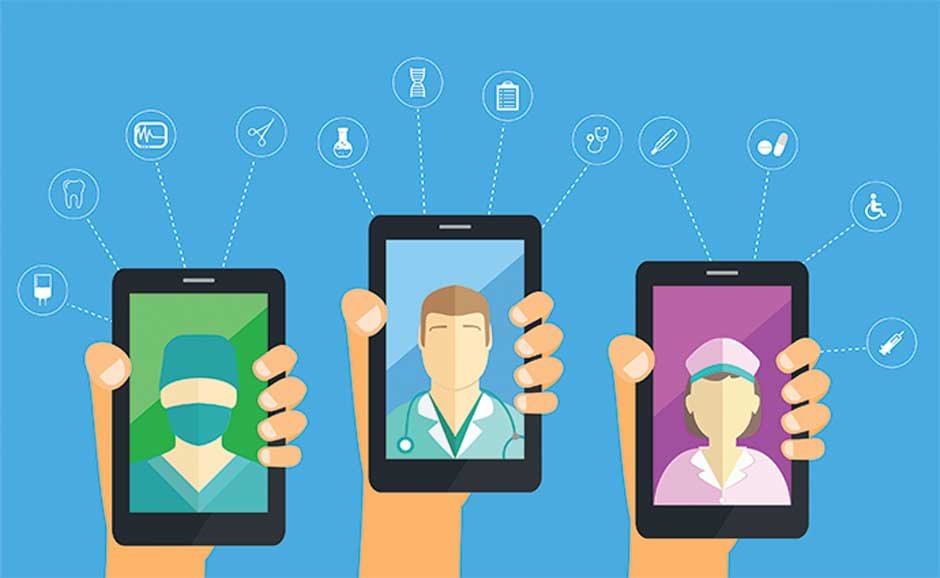In the healthcare industry, mobile applications are becoming increasingly important. They’re used to manage patient records, track and monitor patient health, and facilitate communication between patients and doctors. But with more data being processed by these applications than ever before, they’re also becoming a target for cybercriminals.
In this article, we’ll explore how mobile applications in the healthcare industry can be vulnerable to data breaches due to poor implementation of encryption or access controls. We’ll also look at why implementing strong encryption is so vital for protecting patient confidentiality and preventing unauthorized access to data stored on devices or transmitted over networks—including public Wi-Fi hotspots that could be accessed by hackers anywhere in the world!
Introduction to the Importance of Data Privacy and Security in Healthcare Mobile Applications
Data privacy and security are paramount in healthcare. The risks of data breaches are real, and hospitals must take steps to protect patient confidentiality.
Data breaches have become more common as more organizations use mobile applications that store sensitive information on devices or the cloud, where it can be accessed remotely by users with access privileges. The problem is compounded by the fact that many healthcare organizations don’t have adequate controls in place to protect their data from unauthorized access or theft by malicious actors who want to exploit personal information for financial gain or other nefarious purposes.
Implementing strong encryption methods is one way you can help ensure that sensitive information remains safe at all times while also allowing patients easy access when they need it most (e.g., when they’re away from home).
The Risks of Data Breaches in Healthcare: Protecting Patient Confidentiality and Data Security
Data breaches are a very real threat. According to the Ponemon Institute, the average cost of a data breach is $3.86 million, and healthcare providers are particularly at risk for these types of incidents due to the sensitive nature of their business. A healthcare provider’s reputation can be severely damaged by a breach, as well as its bottom line, and even worse, it could result in legal action against you or your company if there was any negligence involved in protecting patient confidentiality and personal information.
The best thing you can do is prepare yourself against potential threats by educating yourself on best practices for securing patient data while using mobile apps like ours!
Implementing Strong Data Encryption and Access Controls in Healthcare Mobile Applications
Data security is the most important part of any healthcare mobile application, and encryption is a must. An application that does not properly encrypt data is vulnerable to attacks that can compromise patient privacy and other sensitive information.
Encryption protects against unauthorized access by ensuring that only authorized users are able to decrypt the data they need to access. Implementing strong encryption can be difficult, however, as different users might need different levels of access depending on their roles within an organization (e.g., administrators vs clinicians). The key here is knowing who needs what information at what time so you can provide them with an appropriate level of access control based on their role within your organization’s hierarchy and then audit those permissions regularly so no one has more permissions than necessary!
The Role of Secure Cloud Computing in Healthcare App Development
Mobile applications are an integral part of healthcare. They can provide patients with access to their medical records, allow doctors to remotely monitor patients’ conditions and more. However, these applications may be vulnerable to data breaches due to a lack of proper security measures.
The cloud is a safe, secure place where you can store data across multiple devices it’s also cost-effective and scalable as your business grows. As an example: say you have an application for doctors who want access to their patient records while they’re on the go (such as when they’re seeing patients). Instead of having servers in each doctor’s office or clinic location storing all that information locally (which would require constant maintenance), you could use a secure cloud computing service so that all those files are stored remotely instead and then accessed when needed by using any device connected via WiFi or cellular connection!
The Future of Healthcare App Development and the Importance of Data Privacy and Security.
As the healthcare industry continues to evolve, so too will the data security and privacy standards of mobile applications. The future of healthcare app development will be shaped by these new standards, which are sure to include increased use of secure cloud computing, encryption, and access controls.
In order to ensure that your organization stays ahead of the curve when it comes to data security and privacy protections for mobile apps, you should partner with a company like ours that specializes in healthcare app development services, here you can get detailed information about the development. We have extensive experience developing secure mobile applications for various verticals within this industry and we’ll work closely with you throughout every step of the development process so that you don’t fall behind on best practices when it comes time for production deployment or maintenance updates later down the road!
Mobile application developers should implement strong encryption, access control, and auditing methods
In addition to encryption, you should consider implementing access control and auditing methods. Access control is the process of limiting who can see or edit data in your mobile application. You can use this method to protect sensitive patient information from being shared with unauthorized users. Auditing is another essential security measure for healthcare organizations because it allows you to track changes made to patient records by other applications or people who have access permissions to those records.
As you can see, there are many complex issues to consider when developing healthcare mobile applications. The good news is that there are also many ways to address these issues. The key is to take a holistic approach to the problem and find solutions that work for your organization’s unique needs and goals.

